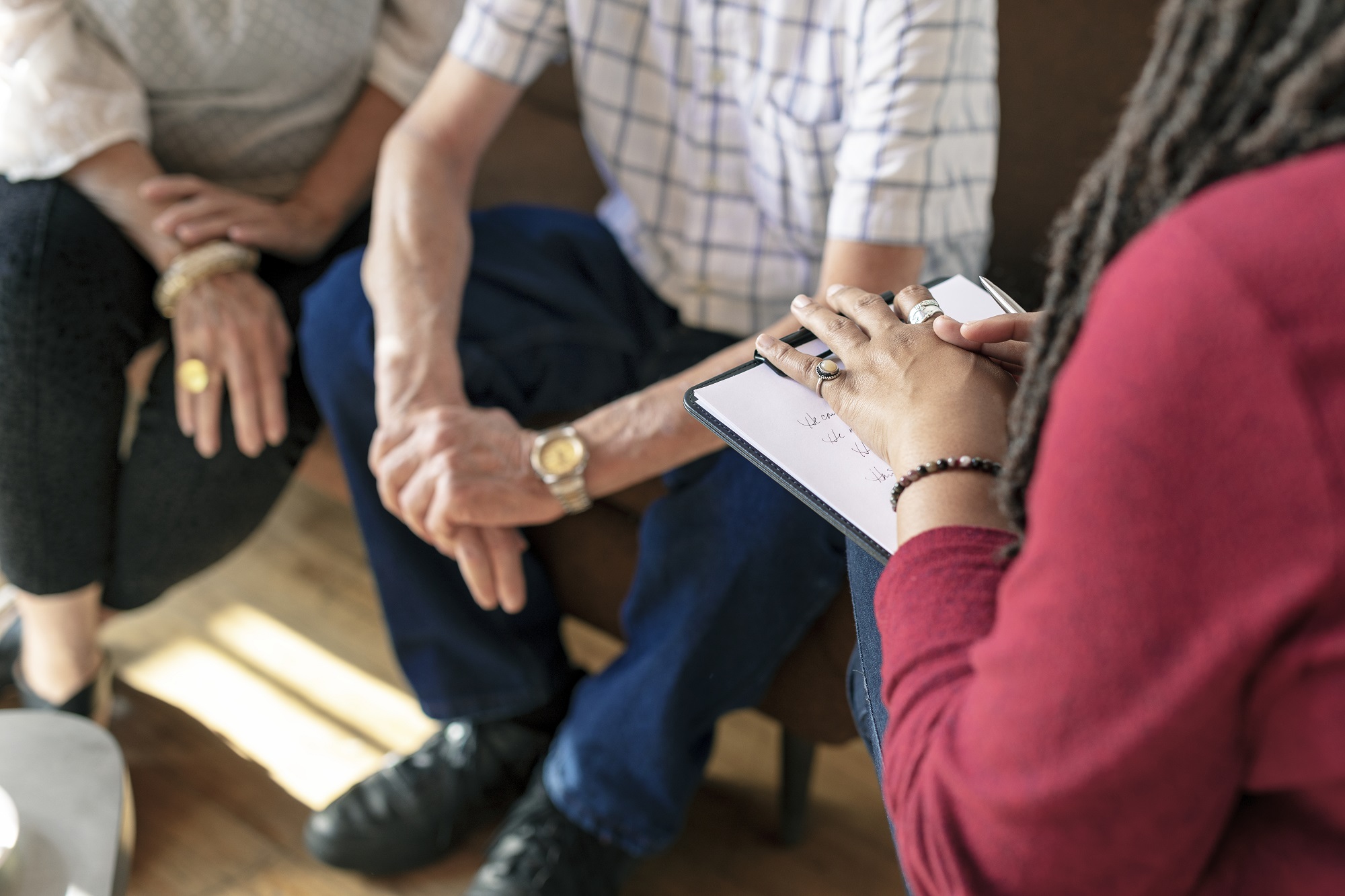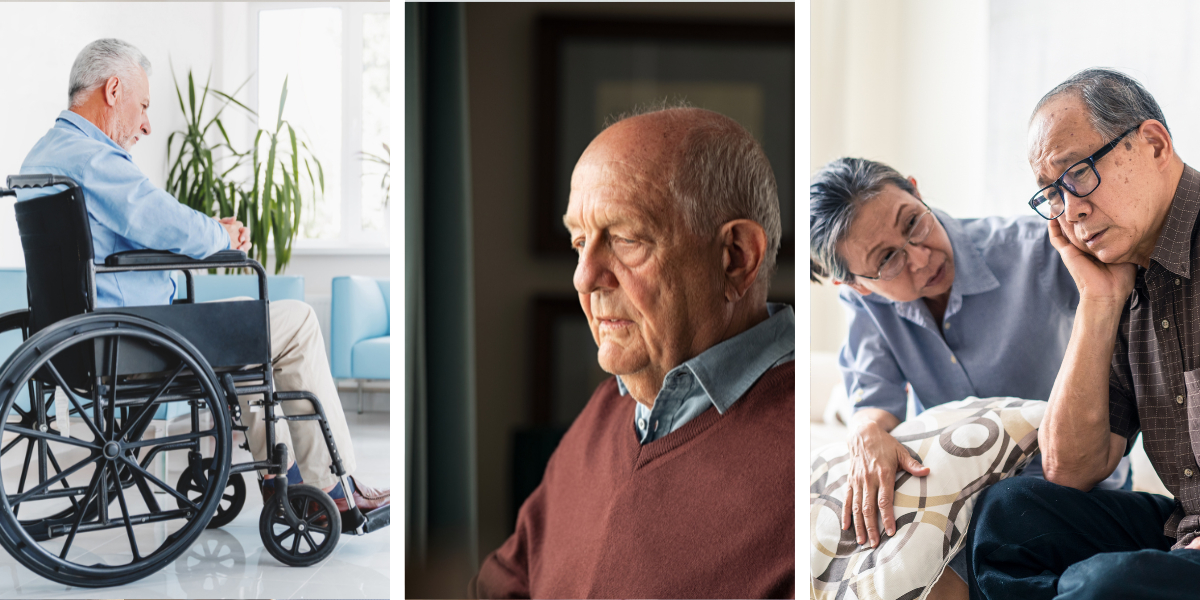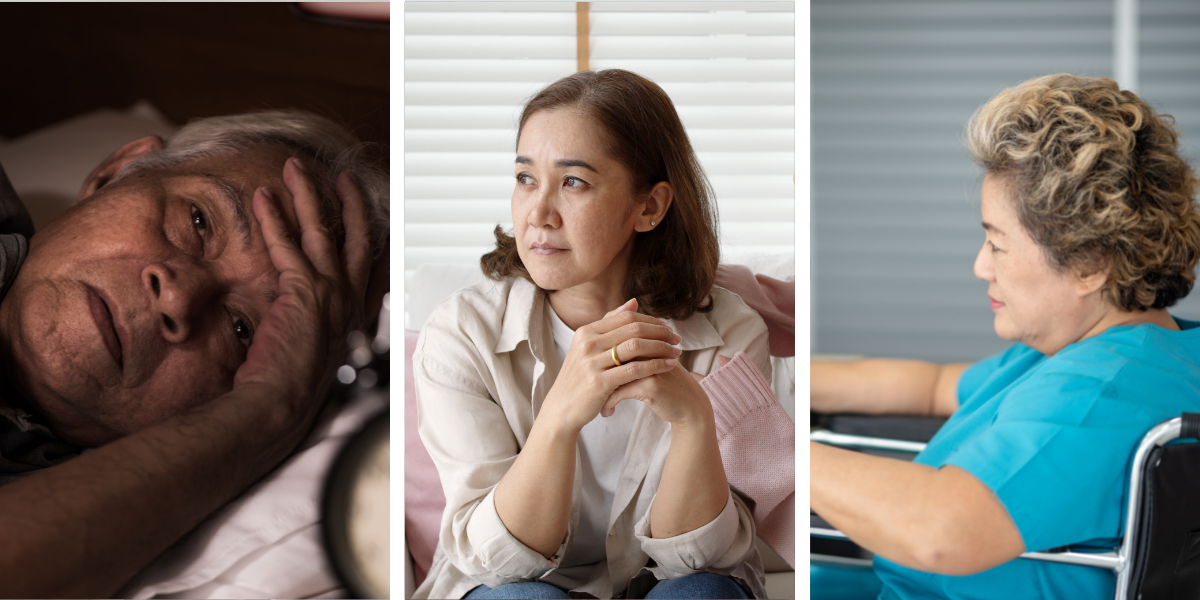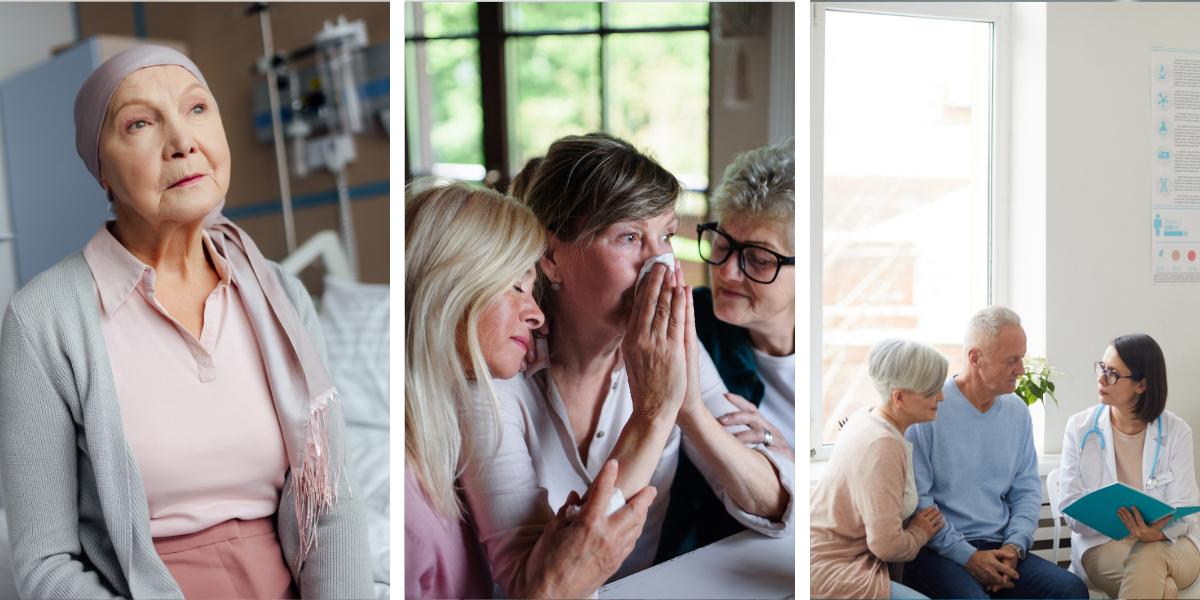
The Elderly and Depression
August 17, 2022Depression is one of the most common mental illnesses Americans face, and it is just as prevalent in older adults. According to WebMD, about six million Americans aged 65 and older suffer from depression, but only 10% receive treatment. This number is shocking.
Reasons that such a small portion of the population receives treatment vary. It could be due to the stigmas many carry about mental illness. It may also be that depression can manifest differently in older people. You must know facts about the elderly and depression so you can recognize the symptoms in a loved one, or yourself.
What are the types of depression?
Depression is not a one-size-fits-all condition. There are several different types of depression that a senior may suffer from, such as bipolar depression and seasonal affective disorder. The most common types are:
- Major depression: This disorder has intense or overwhelming symptoms that interfere with everyday life. It is identified when symptoms last longer than two weeks.
- Minor depression: With this condition, symptoms are less severe than major depression, but can still interfere with daily life. It is often shorter than major depression.
- Persistent depressive disorder (dysthymia): Symptoms are similarly less severe than major depressive disorder, but they can last for two years or longer.
Some people have the misconception that depression is just a normal part of aging. This, however, is not the case. While there will certainly be moments of sadness or stress, depression should not be standard in one’s life. Those with depression have higher rates of obesity or weight loss and may stop caring for themselves.
Why might a senior be depressed?
While the risk factors for depression that impact seniors can affect those of any age, older adults have a higher likelihood of experiencing them. Loneliness, isolation, anxiety, reduced sense of purpose, grief, and other major life events can cause seniors to grow depressed.
This condition is comorbid (medical conditions simultaneously present in a person) with many chronic illnesses and other medical issues. Common conditions that affect seniors, such as Parkinson’s disease, stroke, cancer, and even Vitamin B12 deficiency can all cause depressive symptoms. These conditions build upon one another. When one experiences depression, their physical health suffers. Because their physical health is suffering, their depression symptoms worsen.
Do not forget: depression is genetic. If you have a family history of depression, you may be more at risk of developing the condition yourself. However, the difference between prior generations and now is the wider array of support resources for those with the disorder.
How do I know if I’m depressed?
Depression symptoms can manifest in seniors differently than they would in younger adults. Seniors must recognize and address these symptoms due to comorbidity with other conditions. Older adults who suffer from depression are at higher risk of cardiac diseases and death from illness. It also reduces their ability to rehabilitate from said conditions.
Common signs of depression in seniors include:
- Poor sleep—insomnia, or excessive sleep
- Fatigue and decreased energy
- Irritability
- Confusion
- Difficulty concentrating
- Slow movements
- Change in weight or appetite
- No longer enjoying activities they once did
- Physical aches and pains
Depression in older adults is often misdiagnosed as a reaction to a physical illness or life change that occurs with age. By recognizing these symptoms, adults can receive the treatment they need sooner.
Fight the stigma
One of the main reasons why seniors do not receive treatment for their mental illnesses comes down to stigma. In previous generations, mental health was not discussed. People looked down upon those who experienced mental health problems. These days, we have a better relationship with mental health and treatment.
It is important to be open and honest about one’s mental health not only to break that stigma but for your well-being. If you express your concerns and needs, you’ll sooner receive the support you need to heal.
Treatment
There are several approaches one can take to manage and treat depression symptoms. Some seniors may only need to try one treatment option, while others may benefit from combining treatments. It is important to discuss a plan with your doctor to figure out what works best for you and your lifestyle.
- Therapy: Therapy between a patient and licensed counselor is a highly effective way to treat and manage one’s depression. It is proven to be more effective than medication. Therapists teach their patients coping mechanisms they can continue to use throughout life.
- Medication: Prescribed antidepressants can relieve one’s symptoms of depression and help them feel like themselves again. This being said, antidepressants may have serious side effects for seniors. It is important to speak with one’s primary physician before starting antidepressants.
- Lifestyle change: Things like daily exercise, healthy eating habits, and social support can have a powerful impact on one’s overall wellness. Ask your caregiver to assist with anything that has grown to be difficult, such as getting out of the home or cooking.
- Support groups: It is beneficial to hear how someone going through a similar situation has overcome their problems. Having a safe space to talk in a support group is great for seniors.
If you are experiencing thoughts of suicide or self-harm, call the 988 Suicide & Crisis Lifeline. Compassionate support professionals are on standby to offer you the help you need at any hour.
Receive support from an in-home caregiver
When seniors live alone, they often feel isolated from the rest of the world. Family and friends may be busy with their own lives and aren’t always available to lend an ear. This can lead feelings of depression to fester.
An in-home caregiver is more than someone who provides personal care and medication reminders. They are an active participant in their client’s life. They offer companionship and social interaction that may be contributing to a senior’s depression symptoms. While a person to talk to certainly isn’t the answer to all of one’s problems, it will make a positive impact.
To learn more about how an in-home caregiver can improve your quality of life, call us at 773-274-9262.
Articles:
-
How to Use FaceTime: a Senior’s Guide
March 20th, 2024 -
The Best Organic Cleaning Products for Caregivers
March 19th, 2024 -
Celebrating St. Patrick’s Day with Seniors
March 14th, 2024 -
Intellectual Activities for Seniors to Keep their Brains Stimulated
March 13th, 2024 -
Tips for Communicating with Seniors with Hearing Loss
March 12th, 2024 -
How to Learn a New Language as an Older Adult
March 7th, 2024 -
Foods that Support Bone Health in Seniors
March 6th, 2024 -
A Note to Our Staff for Caregiver Appreciation Day
March 1st, 2024 -
The Importance of a Senior/Caregiver Bond
February 21st, 2024 -
Recreational Sports as Fitness for Seniors
February 27th, 2024 -
Exploring the Wonders of Reminiscence Therapy
February 15th, 2024 -
Staying Educated on Alzheimer’s Disease and Dementia Care
February 14th, 2024
Call Now! 773.274.9262







